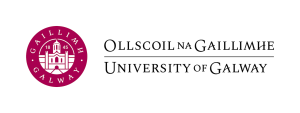ICHEC developing prototype infrastructure to improve health data sharing

Demand for a national technical infrastructure to support safe and secure analysis of linked datasets both in Ireland and internationally has increased as a result of the Covid-19 pandemic. Increased momentum of initiatives such as the European Health Data Space and associated EU legislation to support the coordination of international data sharing will also require Ireland to be able to facilitate secondary use of data for public benefit. The Irish Centre for High-End Computing (ICHEC), along with collaborators from the RCSI, HSE, and TCD, is developing a proof-of-concept (PoC) technical infrastructure to provide a single point-of-access to researchers and data controllers to facilitate linking of health data. Funded by the HRB, DASSL (data access, storage, sharing, linkage) will facilitate provision of health data in a safe and trusted manner, with patient anonymity secured at all times. Similar national Health Data Platforms have been developed internationally, most notably in the UK, Australia, Canada, and Finland.
Commenting on the DASSL project, Dr Simon Wong who is leading the development project at ICHEC, said “Across the Irish health services, barriers to data sharing and linking health datasets have included siloed datasets, inconsistent application of existing legislation, privacy concerns, and different interpretations over data protection. Added to these barriers, minimal use of unique identifiers and the lack of a formal and secure infrastructure to integrate, link and support remote access to data for secondary purposes, including for research, has led to valuable projects being inordinately delayed or in some cases abandoned.
Providing a safe and secure single point of access for researchers to linked health and related data as in DASSL improves efficiency of research outputs while also capturing a more comprehensive overview of the population with longitudinal information which is often more accurate compared to subjectively reported information. This also reduces demands on research participants and ensures that research data is being held securely, “ he said.
Dr Orna Fennelly, e-health researcher at ICHEC is creating a prototype technical infrastructure for DASSL which will be tested using synthetic health data. “The overall objective of the project is to improve healthcare and public health and wellbeing,” she said. “Our work is informed by key stakeholders and this will inform the development, technical infrastructure requirements, operation, and governance of Ireland’s future Health Information Systems.”
The development of DASSL PoC includes close engagement with the HRB (the commissioners of this project) and other key stakeholders who have contributed to its development, including the formulation of use cases. Stakeholder consultation has included representatives from the Department of Health, the HSE, public and patient representatives, HIQA, researchers, and data controllers. It is clear that ongoing public consultation including a Public Advisory Board will be critical to the success of any model taken forward. Openly sharing of the results of research projects using national data will also be crucial to promoting use of these findings for public trust and enhancing public benefit.
The DASSL PoC, commissioned by the HRB and delivered by ICHEC will report its findings at a critical time to inform actions to shape a fit-for-purpose Irish health information ecosystem, with a clear policy intent to optimise the use of health and social care data for secondary purposes, and informing the associated governance, legislation and investments required. The ultimate aim is to enable a better, evidence-informed health system and stimulate research and innovation to improve healthcare outcomes and the wellbeing of the population.



